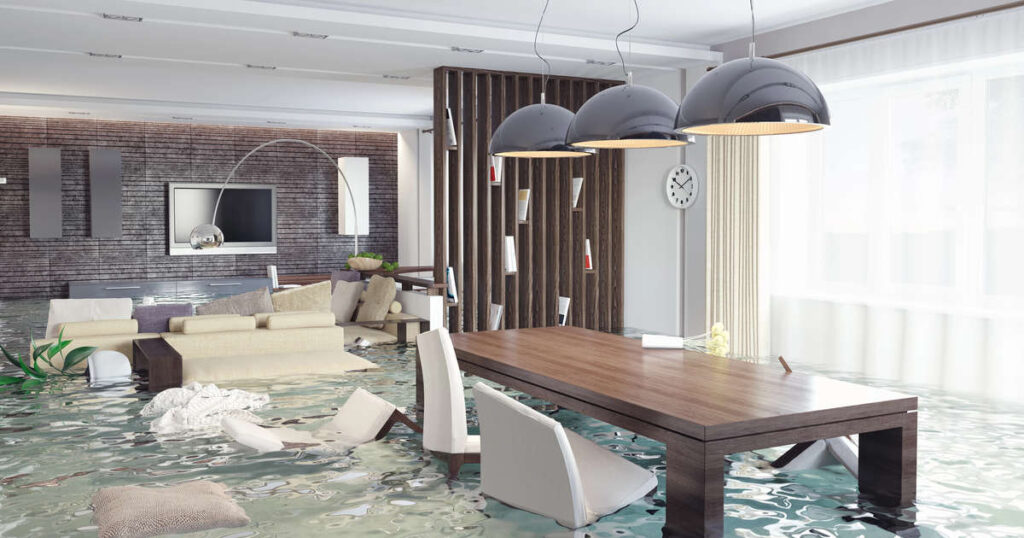A major water leak in a hotel may have both an immediate and a long-lasting impact. The immediate impact can include dealing with complaints from guests, cancelling bookings and managing renovations.
A longer-term impact, however, may not be apparent until the policy renewal date. In the event that a hotel has filed a water-damage claim, the insurer may decide to reassess their risk profile. This can result in higher premiums at the time of renewal.
Consider an Atlantic City Casino Hotel experienced this reality firsthand. One frozen pipe in an area of mechanical equipment caused damages in excess of $5 million. This incident had a significant impact on their property insurance renewal. Their insurance broker projected an additional $5,000,000 in premium increases within five years.
Hotel operators who are proactive can take steps to stop small leaks becoming major problems. It could also be used to help hotels with a long history of leaks show insurers that they are reducing their risks, which might aid in policy renewal negotiations.
How to conduct a comprehensive risk inventory
Before you can protect your hotel effectively, you need to identify its vulnerabilities. Do a room by room assessment, focusing on the HVAC units, bathroom fixtures and any past problem areas.
You need to pay attention to your mechanical systems and space just as much as you do the guest rooms. Assess areas such as the boiler room, pump area, pool equipment, or laundry facilities. Water leaks are most likely to occur in these spaces. A leak in a guest bathroom may only affect one room. However, a leak in a mechanical room can cause elevators to stop working and move entire floors.
Review maintenance logs and insurance claims from the past few seasons to identify patterns.
How to set up smart-monitored systems and response protocols
Installing smart sensors in your hotel will help you detect water leaks before they occur. Although the thought of installing hundreds of sensors in guest rooms and other locations may be daunting, there is a way to reduce the time, costs and effort.
Batteries-powered freestanding sensors can be placed in every guest room, the mechanical area, and any other location. These remote sensors can communicate wirelessly with a gateway that is installed in the hallway or another central location. Each gateway covers a large area of the building such as several floors.
LoRaWAN protocol (Long Range Wide Area Network), or Wi-Fi, are the two main options for wireless sensors to send and receive data. Wi-Fi is available in many hotels, but it’s not the best protocol for Smart Monitoring connectivity due to the energy consumption and short range of connectivity. LoRaWAN on the other hand is designed to communicate over a longer distance and it’s lower power consumption makes it better for battery powered devices.
When it comes to installing Smart-monitored sensors in guest rooms, place sensors under sinks, near toilets, and around HVAC units—these are your most common failure points. Equipment that is under pressure, like boilers, water heating systems, and pumps, are common failure points in mechanical areas.
Installation should be simple enough for your maintenance team to handle. The installation of each sensor is usually as simple as scanning a QR-code and naming its location within your system.
Integrate the system into how your team operates. Alerts can be sent via a variety of channels.
The less specific the alerts are, the more useless they are. Generic alerts such as “water detected anywhere” waste response time. Your monitoring approach should pinpoint exact locations—”guest bathroom in Room 314″ or “mechanical room B-2 near boiler #3″—so your team can respond immediately.
You will also need to have different protocols for responding to different incidents. Create simple decision-trees that will help staff determine the best actions to take: when to turn off water, who to inform, and how to minimize disruption to guests.
Establishing clear roles among staff is essential before any incident occurs. It’s possible for serious leaks to occur in the evenings, when there is no maintenance available. Make sure your security team understands what to do and how to interpret monitoring system alerts.
Working with Insurance Partners Effectively
In the above example, hotel operators who have a history of insurance claims for water damage may face higher premiums at renewal due to the increased risk they could be posing to insurers. If you are a hotel operator in this situation, a water leak detector system may help reduce your risk and allow you to negotiate favourable insurance renewal terms.
Insurance brokers and risk managers are collaborating with smart-monitoring technology suppliers to develop strategies that mitigate risk for hoteliers and property owners. They can be shown to insurers to show that the property actively manages its water leak risk, and can therefore help secure better terms.
Although each hotel is unique, its loss history and other risk factors will influence the final result. However, a strategic approach to coverage can strengthen a property’s position during negotiations.
The Bottom Line
Hotel operators can become proactive in managing water leakage risk by implementing smart-monitoring and comprehensive response protocols. This can help reduce the risk for major disruptions and also allow hotels that have a history with water damage to get better insurance terms.


